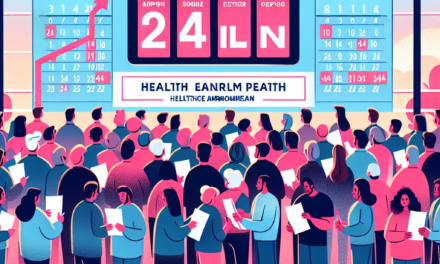Democrats Challenge Oz on Medicare Advantage Support and UnitedHealth Shares
The ongoing debate surrounding Medicare Advantage (MA) has intensified, particularly with the recent challenges posed by Democratic lawmakers against Republican candidates like Dr. Mehmet Oz. As the political landscape shifts, the implications for major health insurance providers, such as UnitedHealth Group, become increasingly significant. This article delves into the complexities of Medicare Advantage, the political ramifications of Oz’s support for the program, and the impact on UnitedHealth’s stock performance. We will explore five key subtopics to provide a comprehensive understanding of this multifaceted issue.
Understanding Medicare Advantage: A Primer
Medicare Advantage is a type of health insurance plan offered by private companies that contract with Medicare to provide all Part A and Part B benefits. These plans often include additional benefits, such as vision, dental, and wellness programs, which are not typically covered by traditional Medicare. The popularity of Medicare Advantage has surged in recent years, with enrollment reaching over 28 million beneficiaries in 2021, representing approximately 42% of all Medicare beneficiaries.
One of the primary reasons for the growth of Medicare Advantage is the perceived value it offers to seniors. Many beneficiaries appreciate the convenience of having all their healthcare needs managed under one plan, often with lower out-of-pocket costs compared to traditional Medicare. However, the program has faced criticism for its complexity and the potential for limited provider networks.
- Enrollment Trends: The enrollment in Medicare Advantage has been steadily increasing, with projections suggesting that it could reach 50% of all Medicare beneficiaries by 2030.
- Cost Implications: While Medicare Advantage plans often have lower premiums, they may impose higher costs for certain services, leading to concerns about affordability for seniors.
- Quality of Care: Studies have shown mixed results regarding the quality of care provided under Medicare Advantage compared to traditional Medicare, with some plans offering superior services while others fall short.
- Regulatory Environment: The Centers for Medicare & Medicaid Services (CMS) plays a crucial role in regulating Medicare Advantage plans, impacting their benefits and reimbursement rates.
- Political Landscape: The political discourse surrounding Medicare Advantage is often polarized, with Democrats advocating for reforms to protect beneficiaries and Republicans generally supporting the program’s expansion.
The Political Landscape: Oz’s Position on Medicare Advantage
Dr. Mehmet Oz, a prominent television personality and Republican candidate, has positioned himself as a staunch supporter of Medicare Advantage. His advocacy for the program aligns with the broader Republican agenda, which emphasizes the role of private insurance in providing healthcare services. However, this stance has drawn criticism from Democratic lawmakers who argue that Medicare Advantage can lead to reduced benefits and increased costs for seniors.
Oz’s support for Medicare Advantage is rooted in the belief that competition among private insurers can drive down costs and improve service quality. He has often highlighted the benefits of MA plans, such as additional coverage options and lower premiums. However, critics argue that these plans can be misleading, as they may not cover all necessary services and can impose high out-of-pocket costs for certain treatments.
- Campaign Messaging: Oz’s campaign has focused on promoting Medicare Advantage as a viable alternative to traditional Medicare, appealing to seniors who are looking for comprehensive coverage.
- Criticism from Democrats: Democratic lawmakers have challenged Oz’s position, arguing that Medicare Advantage can lead to “cherry-picking” healthier beneficiaries and leaving those with greater healthcare needs in traditional Medicare.
- Impact on Vulnerable Populations: Critics contend that the growth of Medicare Advantage could disproportionately affect low-income seniors and those with chronic conditions, who may struggle to navigate the complexities of these plans.
- Public Perception: Polls indicate that while many seniors appreciate the benefits of Medicare Advantage, there is also a significant portion of the population that remains skeptical about the program’s long-term viability.
- Future Implications: As the political landscape evolves, Oz’s support for Medicare Advantage may become a focal point in his campaign, influencing voter perceptions and potentially impacting election outcomes.
UnitedHealth Group: A Key Player in Medicare Advantage
UnitedHealth Group is one of the largest providers of Medicare Advantage plans in the United States, serving millions of beneficiaries. The company’s success in this market has made it a significant player in the healthcare industry, with its stock performance closely tied to the growth of Medicare Advantage enrollment.
In recent years, UnitedHealth has reported substantial revenue growth driven by its Medicare Advantage segment. The company has invested heavily in technology and data analytics to improve care coordination and enhance the member experience. This focus on innovation has allowed UnitedHealth to differentiate itself from competitors and capture a larger share of the Medicare Advantage market.
- Financial Performance: UnitedHealth’s financial results have consistently outperformed expectations, with revenue from its Medicare Advantage plans contributing significantly to its overall growth.
- Market Share: As of 2021, UnitedHealth held approximately 26% of the Medicare Advantage market, making it a dominant force in the industry.
- Investment in Technology: The company’s commitment to leveraging technology has enabled it to streamline operations and improve patient outcomes, further solidifying its position in the market.
- Regulatory Challenges: UnitedHealth, like other insurers, faces regulatory scrutiny regarding its Medicare Advantage plans, particularly concerning marketing practices and benefit offerings.
- Future Growth Prospects: Analysts predict continued growth for UnitedHealth in the Medicare Advantage space, driven by an aging population and increasing demand for comprehensive healthcare solutions.
The Stock Market Reaction: UnitedHealth Shares and Political Influence
The stock market’s reaction to political developments surrounding Medicare Advantage can be significant, particularly for companies like UnitedHealth. As Democratic lawmakers challenge Republican candidates like Oz on their support for Medicare Advantage, investors closely monitor how these political dynamics may impact the healthcare landscape.
Historically, UnitedHealth’s stock has shown resilience in the face of political uncertainty. However, any potential changes to Medicare Advantage regulations or reimbursement rates could have far-reaching implications for the company’s profitability. Investors are particularly concerned about proposals that could limit the growth of Medicare Advantage or impose stricter regulations on insurers.
- Market Volatility: Political debates surrounding healthcare often lead to increased market volatility, with stocks of major health insurers experiencing fluctuations based on proposed legislation.
- Investor Sentiment: Positive sentiment towards Medicare Advantage can drive up UnitedHealth’s stock price, while negative perceptions can lead to declines.
- Long-Term Outlook: Analysts remain cautiously optimistic about UnitedHealth’s long-term prospects, citing the company’s strong market position and commitment to innovation.
- Impact of Legislative Changes: Any significant changes to Medicare Advantage regulations could prompt a reevaluation of UnitedHealth’s business model and growth strategy.
- Strategic Responses: UnitedHealth has historically adapted its strategies in response to political changes, positioning itself to capitalize on new opportunities while mitigating risks.
The Future of Medicare Advantage: Challenges and Opportunities
The future of Medicare Advantage is fraught with both challenges and opportunities. As the program continues to evolve, stakeholders must navigate a complex landscape shaped by political, economic, and demographic factors. The ongoing debate over the merits of Medicare Advantage will likely influence its trajectory in the coming years.
One of the primary challenges facing Medicare Advantage is the potential for regulatory changes that could impact reimbursement rates and benefit offerings. As lawmakers seek to address concerns about the program’s sustainability, insurers may need to adapt their strategies to remain competitive. Additionally, the growing scrutiny of healthcare costs and outcomes may lead to increased pressure on Medicare Advantage plans to demonstrate value.
- Regulatory Landscape: The regulatory environment surrounding Medicare Advantage is likely to evolve, with potential changes that could affect how plans are structured and marketed.
- Consumer Awareness: As beneficiaries become more informed about their options, there may be a shift in preferences towards plans that offer greater transparency and value.
- Technological Advancements: The integration of technology into healthcare delivery will continue to shape the Medicare Advantage landscape, with insurers leveraging data analytics to improve care coordination.
- Demographic Shifts: The aging population will drive demand for Medicare Advantage plans, presenting opportunities for growth in the sector.
- Political Dynamics: The political discourse surrounding Medicare Advantage will remain a critical factor influencing its future, with potential implications for both beneficiaries and insurers.
Conclusion: Navigating the Future of Medicare Advantage
The challenges posed by Democrats to Dr. Oz’s support for Medicare Advantage highlight the complexities of the healthcare landscape in the United States. As the political discourse evolves, the implications for major insurers like UnitedHealth become increasingly significant. Understanding the intricacies of Medicare Advantage, its political ramifications, and the stock market’s response is essential for stakeholders navigating this dynamic environment.
As we look to the future, it is clear that Medicare Advantage will continue to play a pivotal role in shaping healthcare delivery for millions of Americans. The ongoing debates surrounding the program will influence not only political campaigns but also the strategies of insurers and the experiences of beneficiaries. By staying informed and engaged, stakeholders can better navigate the challenges and opportunities that lie ahead in the ever-evolving world of Medicare Advantage.




